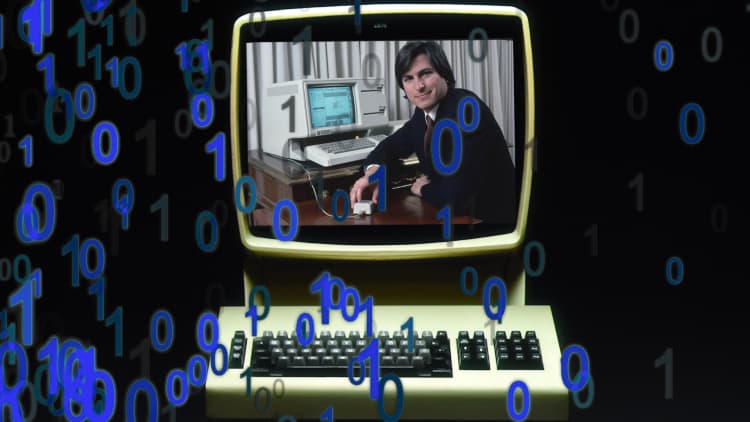Steve Jobs created immense wealth over his lifetime as the co-founder of Apple — now the most valuable company in the world.
But for Jobs, the work was never about becoming rich.
"I was worth about over $1 million when I was 23, and over $10 million when I was 24, and over $100 million when I was 25, and it wasn't that important," Jobs said in 1996 PBS documentary. He co-founded Apple in 1976, as a 21-year-old. "I never did it for the money."
Even later in his career, when Jobs was losing money, he held the same mentality. For example, after a particularly volatile year for Apple's stock in the early 1980s cost Jobs $250 million, he told Playboy he was unconcerned. (Although at that time, it was a fortune to lose for the newly public company and young entrepreneur.)
"I'm not going to let it ruin my life," Jobs told Playboy in 1985. "Isn't it kind of funny? You know, my main reaction to this money thing is that it's humorous, all the attention to it, because it's hardly the most insightful or valuable thing that's happened to me in the past 10 years."
In fact, Jobs intentionally avoided prioritizing wealth, according to biographer Walter Isaacson, who conducted over 40 interviews with Jobs for his book, "Steve Jobs." Even after Jobs was a billionaire — married to Laurene Powell Jobs and raising his children — he sought to avoid a flashy lifestyle.
"His house in Palo Alto is a house on a normal street with a normal sidewalk — no big winding driveway, no big security fences," Isaacson recalled to CBS's "60 Minutes." "You could walk into the garden in the back gate and open the back door to the kitchen which used to not be locked. It was a normal family home."
When The New York Times visited Jobs at his home in 1997, the scene was like any other neighborhood: "[Jobs'] young son was climbing a tree in the backyard, overseen by a watchful nanny; a couple of neighborhood children arrived, accompanied by baby sitters. In the kitchen, Jobs was sitting in a favorite rocking chair with his toddler daughter bouncing on his lap. His wife, Laurene, returned from errands and a jog."
In interviews with Isaacson, Jobs explained that despite his wealth, he didn't want his life to be impacted by greed and materialism.
"I saw a lot of other people at Apple, especially after we went public, how it changed them," Jobs said in a taped interview aired on "60 Minutes." "A lot of people thought they had to start being rich. A few people went out and they bought Rolls-Royces, they bought homes, and their wives got plastic surgery.
"I saw these people who were really nice, simple people turn into these bizarre people," Jobs continued. "I made a promise to myself: I said, 'I'm not going to let this money ruin my life."
Throughout his career, Jobs chose to pursue work that ignited his passion, instead of chasing paychecks. For him, that work was personal computing.
"Humans are tool builders," Jobs said in 1996. "I believe that, with every bone in my body, of all the inventions of humans, the computer is going to rank near, if not at the top, as history unfolds."
For young people just beginning their careers, Jobs issued this advice: "You've got to find what you love," he said in his 2005 commencement speech at Stanford.
"Your work is going to fill a large part of your life, and the only way to be truly satisfied is to do what you believe is great work," Jobs explained. "And the only way to do great work is to love what you do.
"If you haven't found it yet, keep looking. Don't settle. As with all matters of the heart, you'll know when you find it."
Don't miss: In 1985, Steve Jobs made these eerily accurate predictions about the future of tech
Like this story? Subscribe to CNBC Make It on YouTube!



